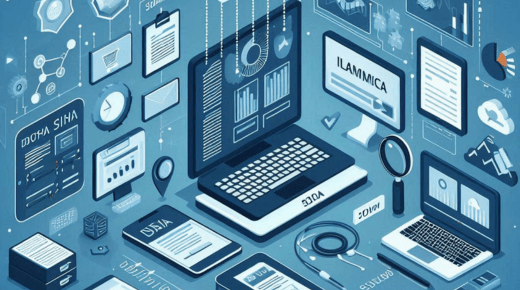Are you overwhelmed by the amount of data your business is generating? Do you find it challenging to keep track of all the different data sources and ensure they are properly integrated and synchronized? If so, you may benefit from using data orchestration tools. In this article, we will discuss what data orchestration is and how to choose the right solution for your specific needs.
What is Data Orchestration?
Data orchestration is the process of automatically organizing, synchronizing, and managing data from multiple sources. This includes collecting data, transforming it into a usable format, and loading it into a data warehouse or other storage system. The goal of data orchestration is to streamline the data pipeline and make it easier to analyze and derive insights from large datasets.
Benefits of Data Orchestration Tools
- Streamlined Data Processing: Data orchestration tools automate the process of collecting and transforming data, saving time and effort for your data team.
- Improved Data Quality: By automatically cleaning and standardizing data, data orchestration tools help ensure that your analysis is based on accurate and reliable information.
- Scalability: As your business grows and generates more data, data orchestration tools can easily scale to handle larger volumes of information.
- Integration with Third-Party Tools: Many Data orchestration tools offer integrations with popular analytics and visualization tools, allowing you to seamlessly analyze and present your data.
Choosing the Right Data Orchestration Tool
When selecting a data orchestration tool for your business, there are several factors to consider:
- Compatibility: Ensure that the data orchestration tool is compatible with the data sources and systems you currently use.
- Scalability: Choose a tool that can grow with your business and handle increasing data volumes.
- Ease of Use: Look for a tool with an intuitive interface and user-friendly features to streamline the data orchestration process.
- Cost: Consider the cost of the tool and whether it fits within your budget, taking into account any additional features or services you may need.
- Security: Make sure the data orchestration tool has robust security features to protect your sensitive data from breaches or unauthorized access.
Popular Data Orchestration Tools
- Apache Airflow: An open-source platform for orchestrating complex computational workflows and data processing pipelines.
- Talend: A comprehensive data integration platform that enables businesses to connect, cleanse, and analyze data from any source.
- Informatica: A leading provider of data management solutions, including data orchestration tools for enterprise-level data integration.
In conclusion, data orchestration tools can help businesses streamline their data processing and analysis workflows. By choosing the right tool for your specific needs, you can improve data quality, increase efficiency, and drive better business decisions. Consider the factors mentioned above when evaluating different data orchestration tools to ensure you select the best solution for your organization’s requirements.
Remember, data orchestration is key to unlocking the full potential of your data and gaining actionable insights that drive business growth. Choose wisely and watch your data work for you!
Learn how to choose the right data orchestration tool for your business needs. Improve data quality, streamline workflows, and drive better decisions with the right solution.

